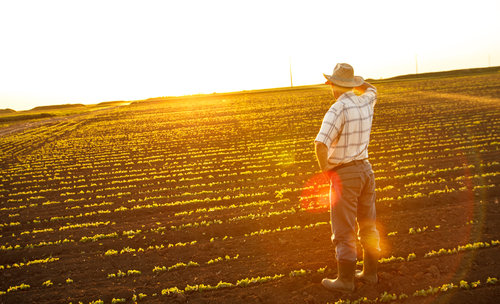Seeding estimated at 45% completion across the province
By Diego Flammini
Assistant Editor, North American Content
Farms.com
Recent seeding data from Alberta indicates seeding is approximately 45 per cent completed as of May 10.
The number represents a 21 per cent jump from last week and is well ahead of the five-year average of 23 per cent.
Seeding progression and surface soil moisture differ depending on where in Alberta the farm is located.
Farms located in Strathmore, Lethbridge, Medicine Hat and Foremost reported 70 per cent seeding completion, which is up from 50 per cent last week. The biggest change in the region between 2015 and 2016 is canola seeding; last year 81 per cent had been seeded compared to 49 per cent this year.
Surface soil moisture ratings in the region declined from 40 per cent good or excellent to 34 per cent within the past week.

Producers in Rimbey, Airdrie, Coronation and Oyen reported 51 per cent seeding completion compared to 19 per cent last week.
Surface soil moisture was rated at 60 per cent good or excellent last week, and declined sharply to 42 per cent.
Farmers in Smoky Lake, Vermilion, Camrose and Provost reported 32 per cent seeding completion, up from only two per cent last week.
Forty-one per cent of the region’s surface soil moisture is rated as good or excellent, down from 48 per cent last week.
The area of Barrhead, Edmonton, Leduc, Drayton Valley and Athabasca reported 26 per cent seeding, compared to only three per cent last week.
In that region, spring wheat seeding is reporting 10 per cent lower than last year, and field pea seeding is reporting 13 per cent ahead of last year.
Farms in Fairview, Falher, Grande Prairie and Valleyview are reporting seeding completion at 30 per cent, compared to 19 per cent last year.